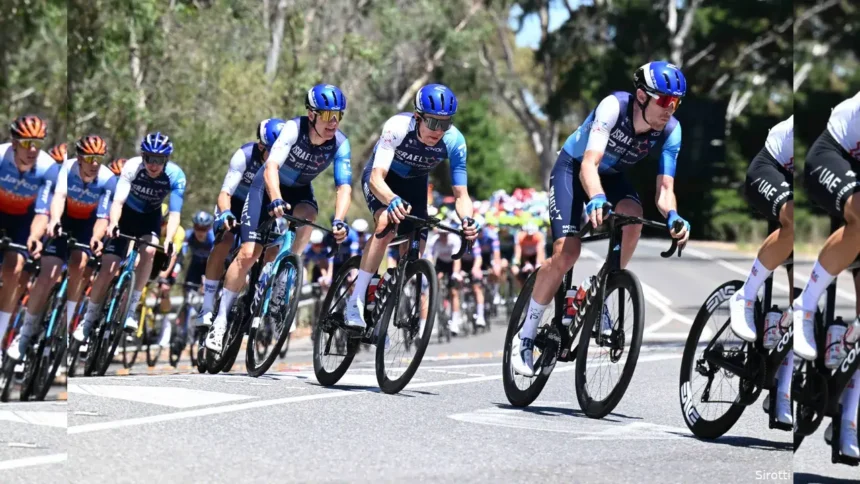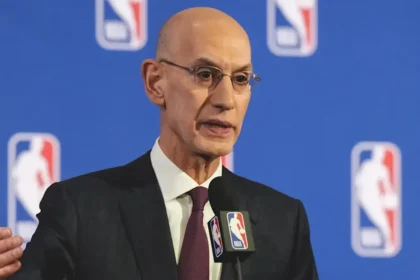In a move that has sent shockwaves through the world of professional cycling, the Israeli cycling team formerly known as Israel–Premier Tech has lost its main sponsor, even after agreeing to remove the word “Israel” from its official team name. The decision by Canadian company Premier Tech to withdraw financial support highlights the increasing tension between sports sponsorship, political sensitivity, and global brand image.
The team had recently announced a plan to rebrand for the 2026 season in response to mounting pressure from activists and race organizers who viewed its Israeli identity as politically charged. Despite complying with a request to drop any direct reference to Israel in its branding, Premier Tech declared that it could no longer continue its partnership, calling the situation “untenable.”
From Rebranding to Rejection
The professional cycling team, founded in 2014, had steadily climbed the ranks of the international racing world. Known for its diverse roster and ambitious expansion, it became Israel’s first squad to compete at the sport’s highest level. For years, the partnership between Israeli-Canadian businessman Sylvan Adams and Premier Tech symbolized a bridge between nations and a shared vision of athletic unity.
However, that vision began to unravel over the past year as global protests intensified surrounding the ongoing Middle East conflict. The team faced repeated demonstrations at major European races, with activists calling for its exclusion from events due to its Israeli affiliation. Some races even saw disruptions and threats of boycotts, prompting the team’s leadership to seek a compromise that might ensure its survival.
In a statement earlier this fall, team officials confirmed that they would undergo a full rebrand — removing “Israel” from the name, adopting new colors, and shifting registration details to appear more neutral on the international stage. The hope was that this step would ease tensions and reassure sponsors.
But despite the rebranding, Premier Tech — one of the team’s two title sponsors — announced its immediate withdrawal. The company said it could no longer be associated with the controversy surrounding the team, explaining that the situation had reached a point where “continuation was no longer possible.”
A Sponsor’s Difficult Decision
Premier Tech, a Canadian manufacturing and horticultural firm, had been one of the biggest financial backers of professional cycling. Its partnership with the team was initially viewed as a way to promote international cooperation and support cycling development across Canada and Israel.
In its announcement, the company emphasized that while it valued its years of collaboration and the accomplishments of the riders, the ongoing political tension and global backlash had overshadowed the team’s sporting achievements. Premier Tech stated that it wanted to “build bridges, not divisions,” but that the association had become a source of conflict rather than unity.
Behind closed doors, sources within the cycling community say that Premier Tech and other corporate partners expressed concerns about the reputational risk tied to the team’s image. Despite the team’s willingness to drop its national identity, many sponsors feared that the controversy would continue to follow them due to lingering public perceptions.
Uncertain Future for the Team
For team owner Sylvan Adams, the loss of Premier Tech is both a financial and emotional blow. Adams, who holds dual Israeli-Canadian citizenship, helped elevate the team from a small startup into one of cycling’s most recognized organizations. He reportedly described the recent developments as “deeply disappointing” and “a painful moment” for everyone involved.
Without a major sponsor, the team now faces an uncertain future. At the WorldTour level, funding stability is critical — covering salaries, equipment, travel, and race participation. Losing a title sponsor so close to the start of the new season puts the team’s long-term survival at risk.
The organization has pledged to continue competing while seeking new financial partners. However, experts note that potential sponsors may hesitate to align with a team still linked, in the public’s mind, to an ongoing geopolitical conflict.
Politics and Sports Collide
The episode underscores a growing reality in global sports: political issues are increasingly influencing sponsorship decisions. Corporate partners are under pressure to evaluate not only financial returns but also social and reputational implications. For cycling — a sport heavily dependent on sponsorship rather than ticket sales — such decisions can be make-or-break.
The controversy surrounding the Israeli cycling team has become a cautionary tale for other organizations with national or political identities. While rebranding may reduce immediate tensions, it cannot always erase underlying associations or satisfy every side of a polarized global audience.
For fans and riders, the disappointment is palpable. Many feel that the team’s inclusive message — featuring athletes from multiple nationalities and backgrounds — was overshadowed by politics beyond their control.
As the dust settles, the team’s leadership remains hopeful that the sport will refocus on athletic excellence rather than political pressure. Yet the reality is stark: in modern professional cycling, even the best intentions can collide head-on with the forces of global opinion.











